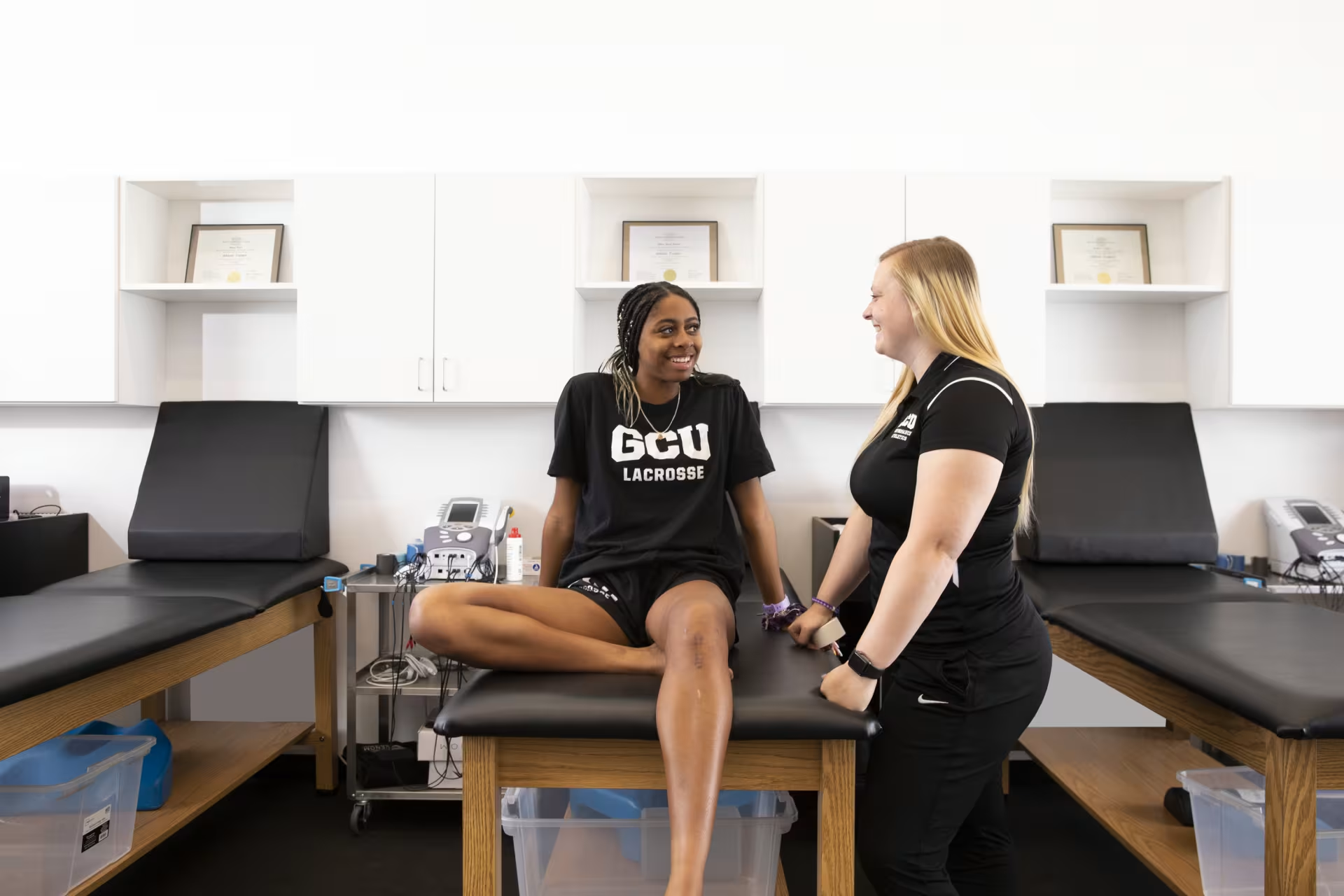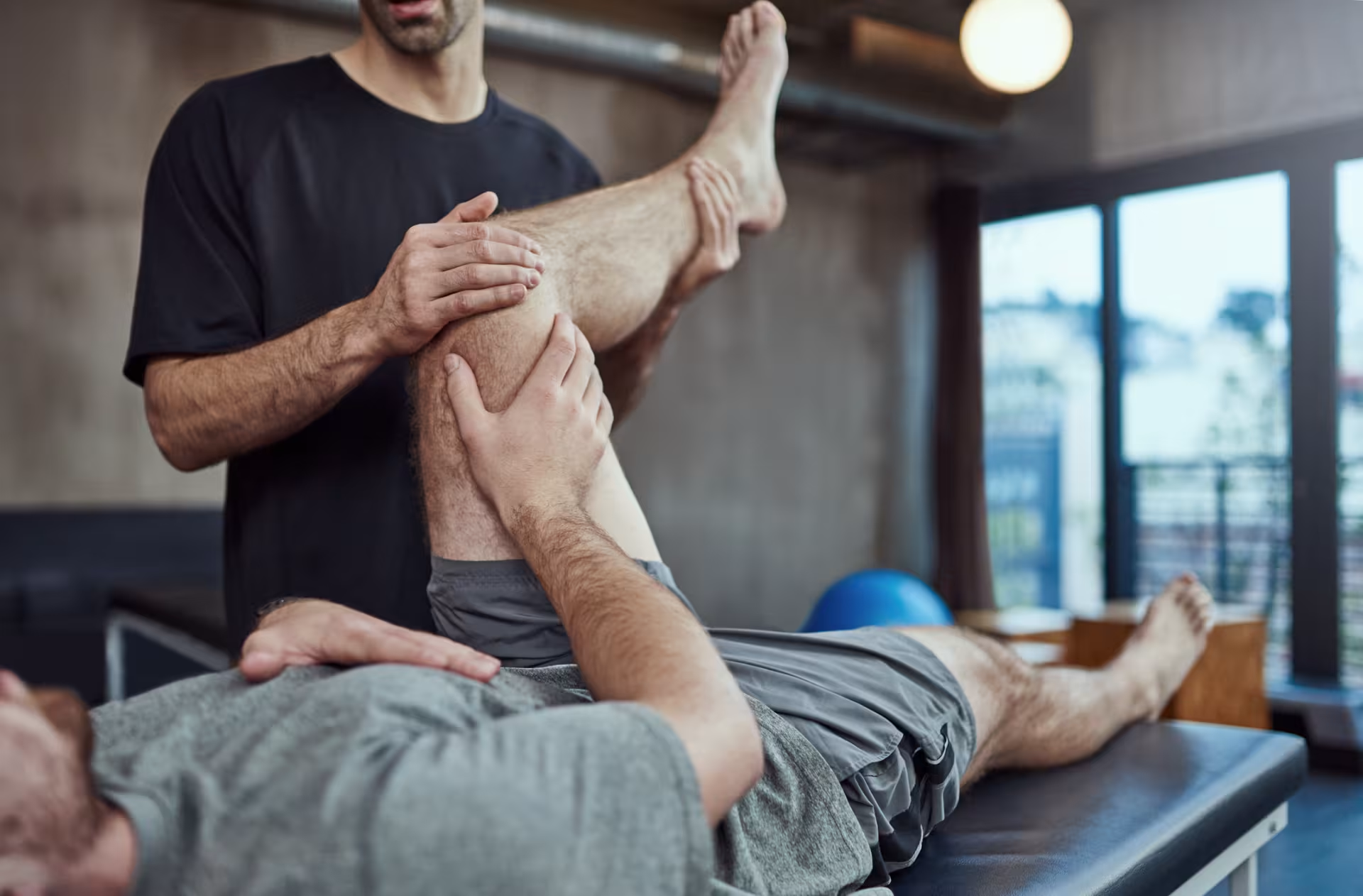
MS in Athletic Training Bridge Program
Promote Quality Care for Athletes
The Bridge (Master of Science in Athletic Training) program at Grand Canyon University is designed for individuals with a bachelor’s degree in an unrelated field who aspire to transition into the field of athletic training. This bridge program serves as a pathway to earning a Master of Science in Athletic Training, equipping you with essential knowledge and skills necessary for the master’s program.

Up to 90 credits, only 84 can be lower division
Credits: Fill out the Lopes Eval to find out what will transfer
Admission Requirements (Bachelor's)
- 16+ years old
- High School Graduate
- 3.0+ Unweighted GPA
OR 2.5+ Unweighted GPA and
- ACT: 19
- SAT: 1000*
Admission requirements may differ based on degree level, program and modality, or transfer status. Some programs of study may require a higher GPA and/or other qualifying criteria for admission. Please review full admission and program requirements in the University Policy Handbook.
*Math and reading only on a 1600 point scale (test date after 3/1/2016). SAT score of 1380 required for 2400 point scale (test date before 3/1/2016).
Transition Into Your Master’s With a GCU Bridge
By enrolling in this bridge program, you’ll take a significant step toward your goal of becoming a qualified athletic trainer, ready to make an impact in the world of professional athletic healthcare. This bridge program offers an opportunity to transition into the Master of Science in Athletic Training for those with a different bachelor’s degree.
Key benefits of our athletic trainer bridge program:
Foundational courses
Complete courses that can help you prepare for your journey in preventative care for athletes.
Increased confidence
Gain a solid understanding of core concepts, enhancing your confidence as you pursue graduate-level education.

Earn Your Bridge Master’s From an Accredited University
GCU is an institutionally accredited university that prioritizes academic quality across all our colleges and programs. In addition, the Higher Learning Commission has continually accredited GCU since 1968.
Athletic Trainer Bridge Program FAQs
As you contemplate transitioning into the field of athletic training, you might have some questions. Take a look at the following FAQs and their answers to help guide your decision-making process.
What is athletic training?
What education is required to be an athletic trainer?
What degree is best for athletic training?
Program Curriculum
Core Courses

Enroll in the athletic training bridge program at GCU and pave your pathway to a Master of Science in Athletic Training.
Visit the "State Disclosures" section on the page of the program you’re interested in at gcu.edu for details on state restrictions.
- U.S. Bureau of Labor Statistics. (2024, Aug. 29). How to Become an Athletic Trainer. Retrieved March 7, 2025.


